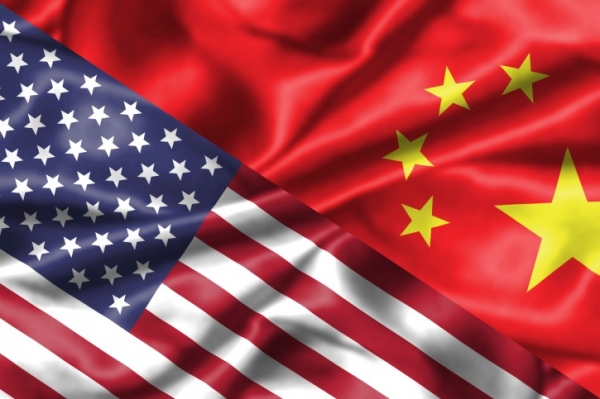U.S.-China AG trade endures amid rancorous rivalry

China was far and away the top customer for U.S. food and ag exports, despite rising tensions between the nations and the still-unresolved trade war, according to government data released on Monday. Agricultural economist David Widmar said China was on track to break the record it set last year for purchases of American agricultural products.
Halfway into the year, China was more than $2 billion ahead of Canada or Mexico in purchases of U.S. ag exports. The three nations routinely account for nearly half of ag exports. China was responsible for $1 of every $5 of the U.S.’s record-large ag exports last year.
President Biden said he was “concerned” about Chinese military exercises around Taiwan that followed a visit by House Speaker Nancy Pelosi. “But I don’t think they’re going to do anything more,” the president told reporters. Relations between the nations have been strained for years and lawmakers proposed legislation this year to block China from acquiring U.S. farmland or agricultural companies.
Exports generate 25 cents out of each $1 in U.S. farm income, according to a 2019 USDA analysis.
From Jan. 1 through June, China bought $16.8 billion of U.S. food and ag exports, followed by Canada — with $14.4 billion — and Mexico with $13.9 billion, according to trade data collected by the Census Bureau and analyzed by the USDA.
At its current pace, China might purchase as much as $40 billion of U.S. ag exports this, wrote Widmar at the Agricultural Economic Insights blog. Purchases in the early months of this year were “very strong,” he said.
Sales to China were dramatically larger during the first half of this year than the same period in 2021, when they totaled $14.6 billion. High commodity prices were a factor, wrote Widmar, but China also has expanded purchases of U.S. beef and corn. Private exporters reported on Monday the sale of 132,000 tonnes of U.S. soybeans for delivery to China during the trade year that opens on Sept. 1.
With a robust economy and increasing wealth, China would be a high-volume food and ag importer for years to come, said Widmar. Agricultural Economics Insights made the same point last year: “All signs point to China buying more imports in the future, but it’s never easy to predict which crops, or quantities, China will import.”
China is the world’s largest importer of agricultural goods including soybeans, cotton and corn while the United States is the largest exporter, but sales can fluctuate dramatically. They tumbled to $13.2 billion in 2018 during the trade war started by President Trump and rebounded to $28.4 in 2020 following the “phase one” agreement that de-escalated the dispute between the world’s two largest economies.
U.S. agricultural exports worldwide totaled $100 billion mid-way through this year, far ahead of the $86.7 billion seen in the first half of 2021.
The USDA has estimated that exports will reach $191 billion — the highest ever — in the fiscal year ending on Sept. 30 as the world scrambled to replace the corn, wheat and vegetable oil it normally would get from Russia and Ukraine. It would be the second year in a row of record-high farm exports. The USDA was scheduled to update its forecast on Aug. 30.
Read also
Wheat in Southern Brazil Impacted by Dry Weather and Frosts
Oilseed Industry. Leaders and Strategies in the Times of a Great Change
Black Sea & Danube Region: Oilseed and Vegoil Markets Within Ongoing Transfor...
Serbia. The drought will cause extremely high losses for farmers this year
2023/24 Safrinha Corn in Brazil 91% Harvested
Write to us
Our manager will contact you soon



